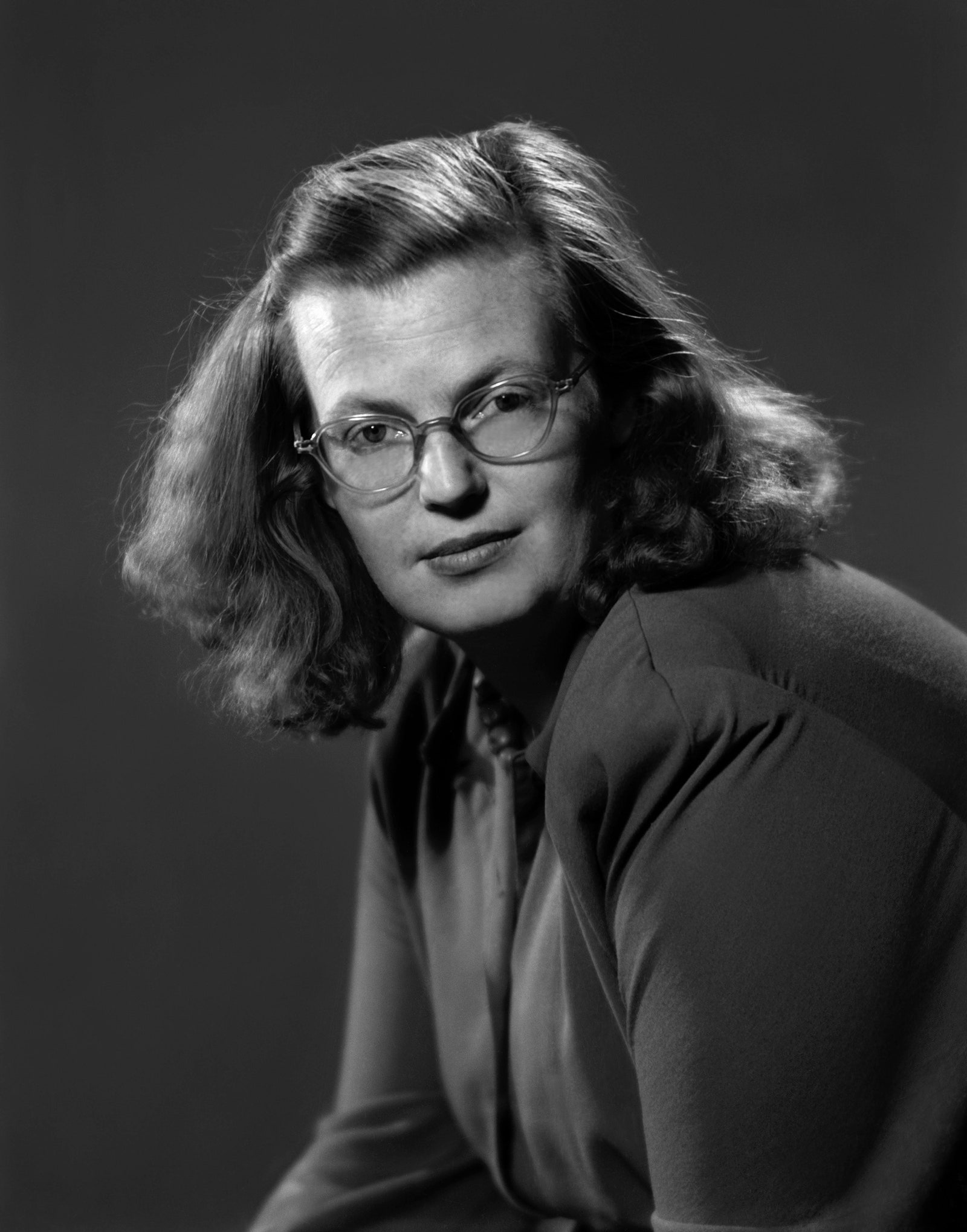Shirley Jackson: Lottery Winner
Special to the Newsletter
by Michael F. Bishop
At first, readers of the June 26, 1948, issue of The New Yorker must have thought that Shirley Jackson’s short story was a conventional slice of Americana. It depicted a New England hamlet preparing for its annual lottery, a local tradition meant to guarantee a good harvest. But in one of the darkest twists in American literary fiction, the “winner” is stoned to death by her fellow villagers.
The young author was probably shocked by the volume of hate mail she received in response—and—the editors of the magazine were no doubt displeased by the many subscription cancellations. But Jackson had made her mark, and “The Lottery” established her as a major new voice in American letters.
Shirley Hardie Jackson was born in comfortable, but somewhat unhappy circumstances on December 14, 1916, in San Francisco, California. She grew up in the genteel suburb of Burlingame, just south of the city; from an early age she showed a regard for writing, but the hobby appalled her mother, who believed young ladies should not concern themselves with such things. Even so, Jackson persisted, and as a college student in New York she published her first story; Its theme–the suicide attempt of a forlorn teenager–presaged the darkness of much of her later work.

She met Stanley Edgar Hyman while at university and they married when she was twenty-four. They settled in Vermont and had four children, where she concentrated on the raising of their four children, while he taught (and had affairs with) his students at Bennington College. Although her financial might eventually eclipsed his, he maintained a tight control over the family’s finances.
Jackson authored several novels and hundreds of short stories, but “The Lottery” was her greatest success. The controversy surrounding it prompted her to respond: “Explaining just what I had hoped the story to say is very difficult. I suppose I hoped, by setting a particularly brutal ancient rite in the present and in my own village, to shock the story’s readers with a graphic dramatization of the pointless violence and general inhumanity in their own lives.” Among the flood of disapproving letters was one from her always critical mother, who wrote: “Dad and I did not care at all for your story in The New Yorker…it does seem, dear, that this gloomy kind of story is what all you young people think about these days. Why don’t you write something to cheer people up?” Other notes were worse; Jackson later recalled that some of her correspondents asked about “where these lotteries were held, and whether they could go there and watch.”
Jackson also produced a myriad of amusing tales based on her chaotic life as a mother of four rambunctious children. In them she applied a humorous gloss on a difficult marriage and home life. Perhaps in doing so she conjured for herself a happier existence than the one that had unfolded since the days in bucolic Burlingame.
For all her forays into domestic comedy, Jackson’s most notable works were packed with terror, alarm, and fright. Her most famous novel, The Haunting of Hill House, published in 1959—and still well-regarded—influenced the future career of Stephen King.
Jackson’s literary achievements seem even more impressive when one considers that—in addition to raising the children—she coped with a feckless husband and suffered from chronic pain and ill-health that were aggravated by her heavy smoking; dependence on drugs and alcohol, dogged depression, and a web of well-meaning, but often unhelpful medical interventions by prescription-happy physicians.
Still, she labored, despite her many hardships; Jackson even enjoyed a brief period of physical recovery before her sudden death of a heart attack at 48 in 1965. She left a large body of work—unpublished stories—some of which appeared posthumously. Her books and stories continue to outlive her, reaching new audiences through radio, television, movie, and video game adaptations. Jackson has been the subject of biographies, critical essays—and—a character in a novel. A humorous take on “The Lottery” was also featured in an episode of The Simpsons.
One wonders if her prim and proper mother would have ever given her daughter the credit she deserved.
Michael F. Bishop, a writer and historian, is the former executive director of the International Churchill Society and the Abraham Lincoln Bicentennial Commission.




